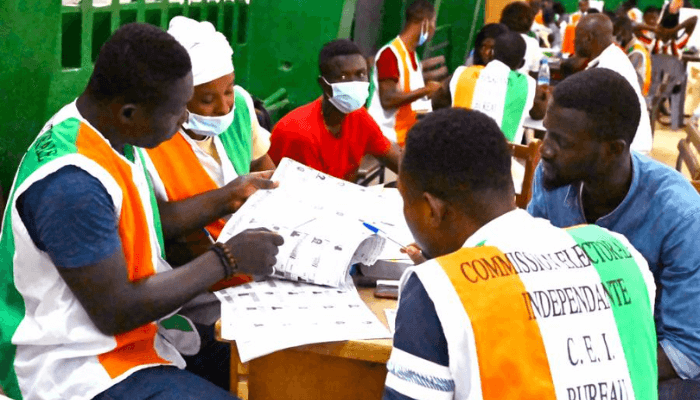Ivory Coast votes in tense election as security forces flood streets
Ivory Coast heads to the polls today in a tense presidential election that will test both the strength of the country’s democracy and the patience of its citizens. There is heavy security on the streets. The government has deployed some 44,000 personnel nationwide to prevent a repeat of past election chaos.
Tension has already flared. In recent weeks, three people have died and more than 700 have been arrested as authorities moved quickly to stop opposition marches. Around 30 people have been sentenced to three years in prison for disturbing public order. Officials insist they are determined to avoid the deadly unrest that scarred the 2020 vote, when 85 people lost their lives.
Read also:Côte d’Ivoire votes: Key facts about the October 25 presidential election
This country has a long and painful history of election violence. Alassane Ouattara took office after the disputed 2010 contest spiralled into conflict. More than 3,000 people were killed in fighting between supporters of Ouattara and those of Laurent Gbagbo, who had ruled for a decade.
Nearly 8.7 million people are registered to vote in a nation of 32 million people that is often described as the most dynamic economy in West Africa. Yet turnout has been weak in recent elections. Only 53 percent of eligible voters cast a ballot in 2020. The winner must secure more than half of the votes cast. A second round would follow if no candidate passes that threshold today.
Ouattara, 83, has been in power since 2011 and is the favourite. He faces four challengers, most of them from outside the main political establishment. Simone Gbagbo, 76, a former first lady, is making her own bid for power. Henriette Lagou, 66, is a veteran campaigner for women’s rights. Commerce minister and businessman Jean Louis Billon, 60, is the youngest candidate. Ahoua Don Mello, 67, a civil engineer and former minister, is running as an independent.
Read also: Osinbajo to lead ECOWAS team for Côte d’Ivoire election monitoring
Ouattara presents himself as the guarantor of security and economic progress at a time of rising insecurity in the wider region. Ivory Coast remains a major cocoa producer and one of Africa’s fastest growing economies. Yet many citizens say they have not felt the benefit.
The government has relied on significant support from the International Monetary Fund. The country now owes more than four billion dollars to the IMF and is among the institution’s most indebted borrowers. Poverty remains widespread. More than 39 percent of people lived below the national poverty line in 2023, according to the World Bank. The richest fifth of the population consumes around six times more than the poorest fifth.
Read also: Electricity Access: Nigeria’s dream is reality in Cote d’Ivoire
The divide between towns and rural communities is especially stark. Urban poverty stands at roughly 31 percent. In rural areas more than half of households live in poverty. Access to basic services such as clean water, functioning schools and reliable healthcare is far worse in the north of the country than in the wealthier south.
Ivory Coast has known too many elections that ended in violence. The hope among many today is that this one will not add to that unfortunate record. The ballot box will decide whether the call for stability prevails or whether a new political chapter is about to begin.

